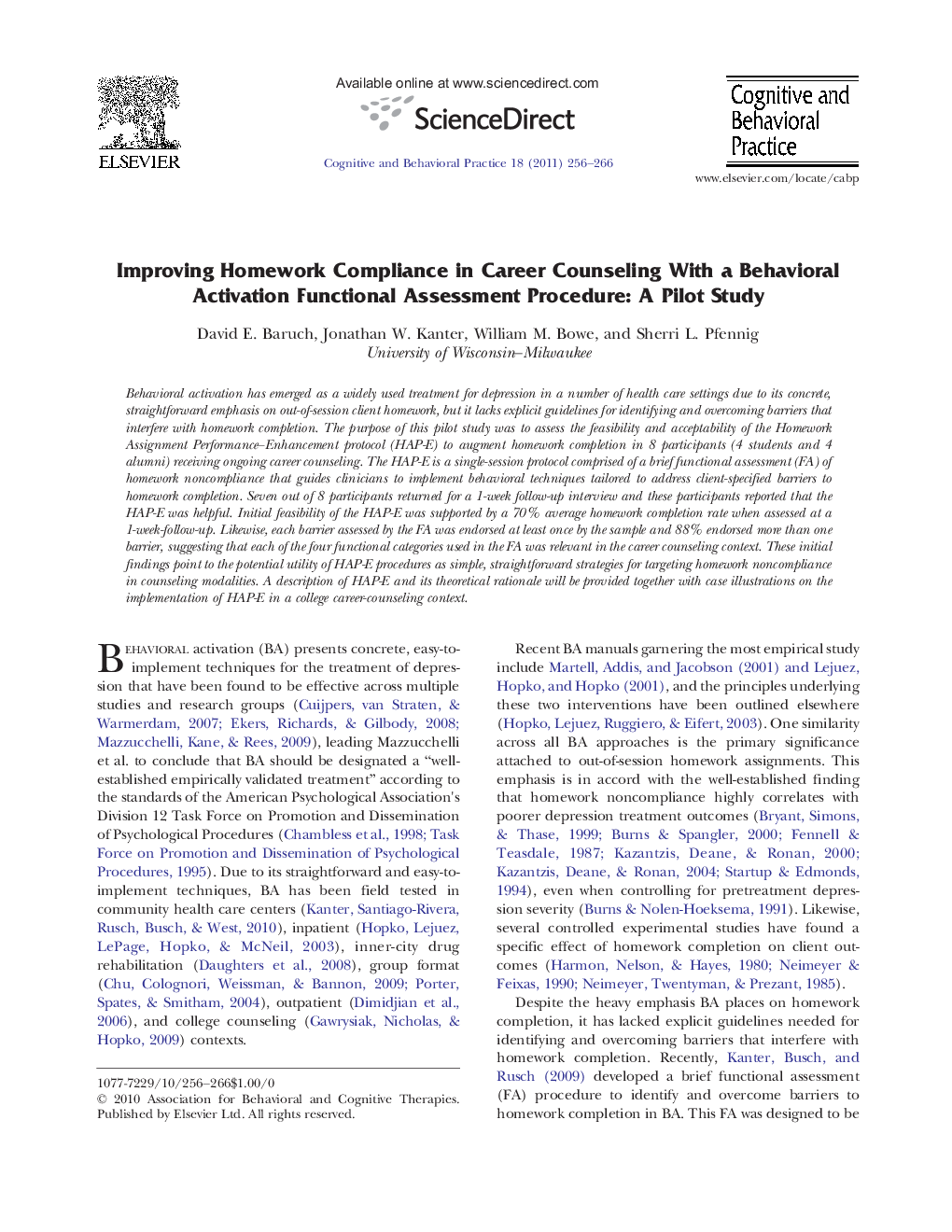| Article ID | Journal | Published Year | Pages | File Type |
|---|---|---|---|---|
| 904544 | Cognitive and Behavioral Practice | 2011 | 11 Pages |
Behavioral activation has emerged as a widely used treatment for depression in a number of health care settings due to its concrete, straightforward emphasis on out-of-session client homework, but it lacks explicit guidelines for identifying and overcoming barriers that interfere with homework completion. The purpose of this pilot study was to assess the feasibility and acceptability of the Homework Assignment Performance–Enhancement protocol (HAP-E) to augment homework completion in 8 participants (4 students and 4 alumni) receiving ongoing career counseling. The HAP-E is a single-session protocol comprised of a brief functional assessment (FA) of homework noncompliance that guides clinicians to implement behavioral techniques tailored to address client-specified barriers to homework completion. Seven out of 8 participants returned for a 1-week follow-up interview and these participants reported that the HAP-E was helpful. Initial feasibility of the HAP-E was supported by a 70% average homework completion rate when assessed at a 1-week-follow-up. Likewise, each barrier assessed by the FA was endorsed at least once by the sample and 88% endorsed more than one barrier, suggesting that each of the four functional categories used in the FA was relevant in the career counseling context. These initial findings point to the potential utility of HAP-E procedures as simple, straightforward strategies for targeting homework noncompliance in counseling modalities. A description of HAP-E and its theoretical rationale will be provided together with case illustrations on the implementation of HAP-E in a college career-counseling context.
